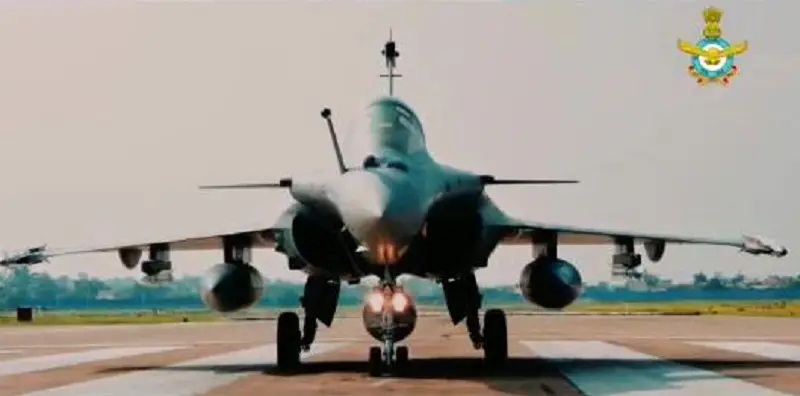The first five Dassault Rafale fighters, dubbed “game-changers”, were formally inducted into the Indian Air Force on Thursday at a glittering ceremony in the Ambala air base. The Indian Defence Minister Rajnath Singh, his French counterpart Florence Parly, Chief of Defence Staff Gen Bipin Rawat and Air Chief Marshal RKS Bhadauria were among the dignitaries who attended the ceremony. A traditional ‘sarva dharma puja’, a ceremonial ‘water cannon salute’ to the Dassault Rafale jets and an aerial display featuring various breathtaking manoeuvres by the aircraft marked their induction into the 17 Squadron “Golden Arrows” of the IAF. As part of the deal Dassault Aviation will set up depot-level maintenance.
The Rafales with their `Meteor’ air-to-air missiles (120-150 km strike range), ‘Scalp’ air-to-ground cruise missiles (over 300 km) and other armaments, are fully-operational, they will certainly be a force to reckon with. Pakistan and China do not currently have any missiles of this class in their combat inventories With a combat range of 780-km to 1,650-km depending on mission, the Rafales come armed with a deadly weapons package, advanced avionics, radars and electronic warfare systems to prevent jamming by adversaries and ensure superior survivability in hostile contested airspace. Each Rafale can also carry two fire-and-forget Scalp cruise missiles to hit high-value fortified targets well over 300-km away.
The Indian Air Force Rafales will be able to outgun and outrun Pakistani F-16 and JF-17 as well as the Chinese Chengdu J-20 fighters. France has till now delivered 10 Rafales to India, with the other five being kept back at Merignac to train additional IAF pilots and technicians over the next nine months. Rafale being based in Ambala is important as the fleet can rapidly access all areas of interest from the air base,” IAF chief RKS Bhadauria said hinting at the ongoing face-off with China at the LAC.The upgrades range from radar enhancements, Israeli helmet-mounted displays and low-band jammers to towed decoy systems, 10-hour flight data recording and engine capability for “cold start” from high-altitude regions like Ladakh.















